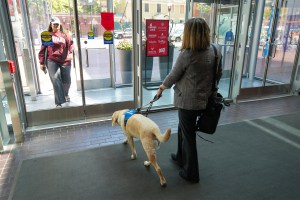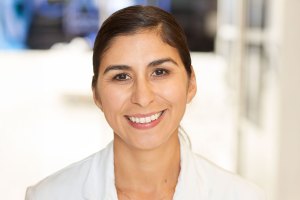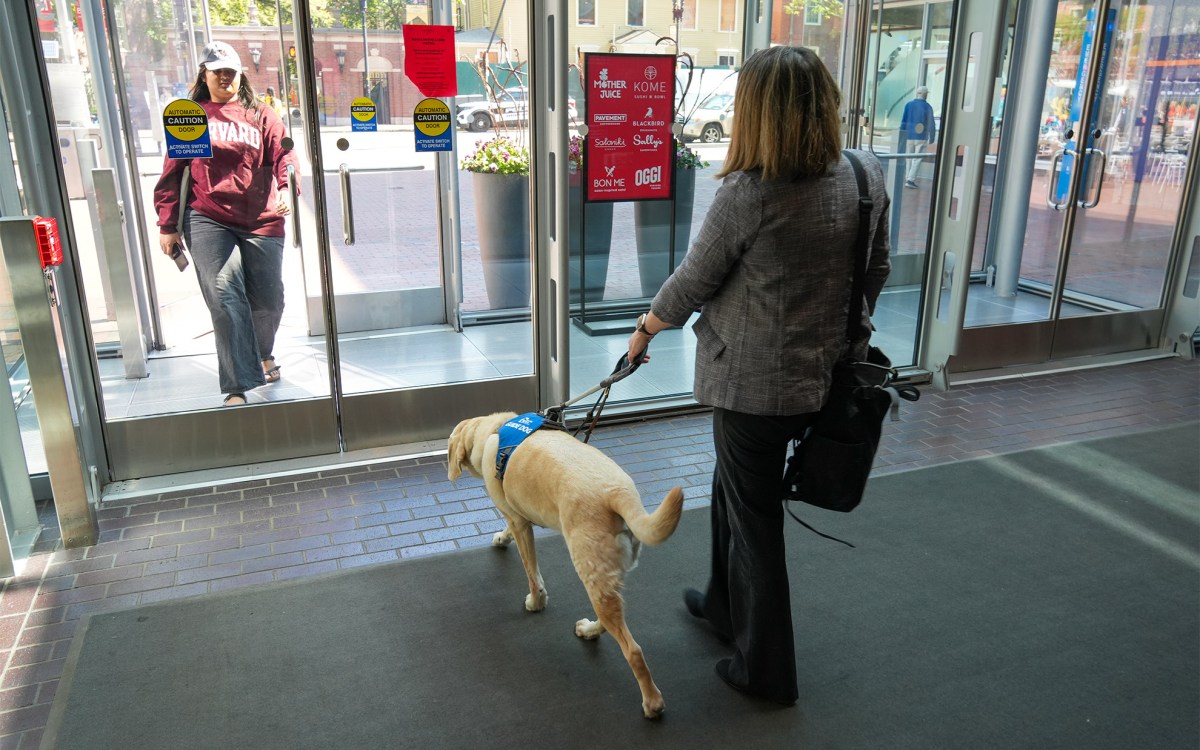The art of the matter
Arts First celebration is undaunted by the challenges of Mother Nature
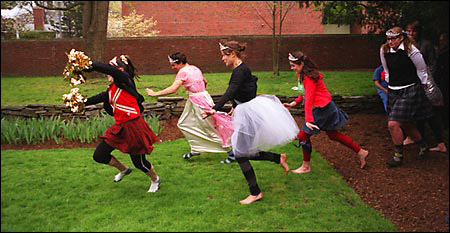
In April you can go to New Orleans for a celebration of jazz, and in August you can head to Edinburgh for a nonstop multiweek theater fix. Lincoln Center has dance all summer. But all those art forms and more fuse with dazzling effects during the annual four-day celebration of the arts at Harvard. The 13th Arts First was held last weekend.
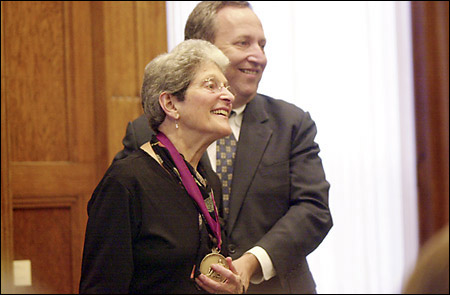
This festival was the first ever to be severely affected by stormy weather, and many blamed the ill-omened number 13. But students, faculty, alumni, and members of the community at large braved the wind and rain, an indication of the steadfast devotion to and appreciation of the arts at Harvard.
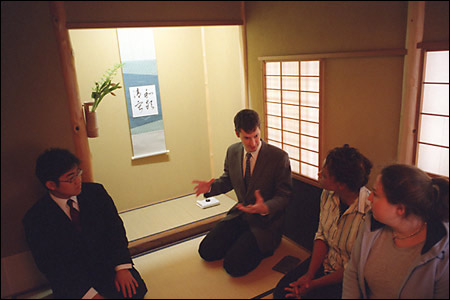
This year, Arts First, which was founded by John Lithgow ’67 and is produced by the Office for the Arts in collaboration with the Board of Overseers, featured a total of 225 performances and studio shows, and involved about 2,000 students. As President Lawrence H. Summers pointed out, of about 6,500 undergraduates, more than 3,000 are involved in the arts in some form during their undergraduate career, whether it’s performing in music ensembles, creating visual art, or publishing poetry or short stories.
The soul of the event was perhaps best captured by Summers during his opening remarks on Saturday when he said, “We say on this day to Mother Nature, ‘You can dampen the ground, you can dampen the paths, but you cannot dampen the artistic spirit at Harvard University.’” Does Summers’ enthusiasm stem from a personal commitment to an artistic practice? “I play very bad piano,” he later said. “Otherwise, I confine my role to appreciating the talented.”
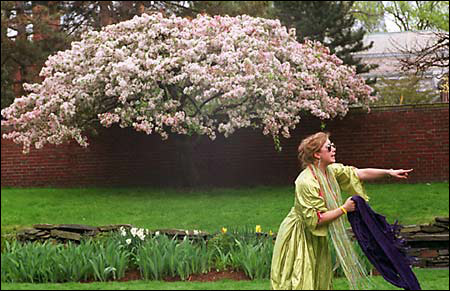
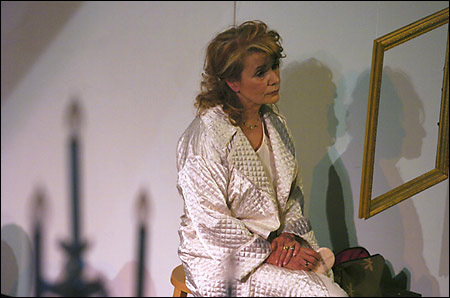
Support was on display all around. As the Sunday Jazz Band played during the opening ceremony, Darryl Campbell ’06, who wrote the arrangement for the composition being performed on stage, sat with seven other students who are in the Harvard Marching Band, one of the few groups to have its appearance affected by the rain. Yet, although the kickoff parade they were to have led was cancelled, it didn’t stop the members from actively participating in an enthusiastic spectator capacity.
“It’s pretty amazing when you open the program booklet: you don’t realize how many student groups there actually are playing music and doing art and drama. It’s a real eye-opener,” said Campbell.
The ensemble on stage, under the direction of Mark Olson, assistant director of Harvard Bands, finished its program, which included tunes by Duke Ellington, Benny Carter, Thelonious Monk, and Hank Jones. The tent emptied and the Performance Fair began – four hours that featured more than 100 performances in 12 venues. For many, it was the beginning of an afternoon of crisscrossing the campus for a virtual feast of music, dance, comical and tragical stage performances, and a hearty dose of surprises.
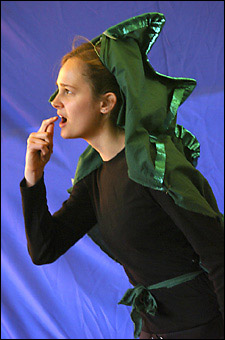
While events differ from year to year, one Arts First constant since 1995 is the presentation of the Harvard Arts Medal, which goes to a faculty member or a Harvard or Radcliffe alumnus/a in recognition of a distinctive achievement in the arts. This year’s medal went to Maxine Kumin ’46, author of 15 volumes of poetry, four novels, a memoir, and 20 children’s books, and a Pulitzer Prize winner.
On Friday, during a “talk-back session” moderated by poet Jorie Graham, Boylston Professor of Rhetoric and Oratory, Kumin spoke unassumingly about her heartfelt connection to the natural world, her political impulses, her success at foraging a path for women poets in a field that, at the time she began writing, was dominated by men. She also spoke of the demands of reading poetry.
“You have to work at it, invest a lot of yourself in every poem you read,” she said. “You have to bring as much of your past to poetry as the poet brought to it. Poets are very passionate people.”
In presenting Kumin her medal, Summers said, “In one sense, we honor Maxine Kumin with the Arts First Medal. In a different sense, she honors us with her poetry, her presence, and her membership in the community.” He added words of praise for the “rigor, and responsibility – whether civic, political, or personal – [that] are at the heart of Maxine’s work as a poet.”
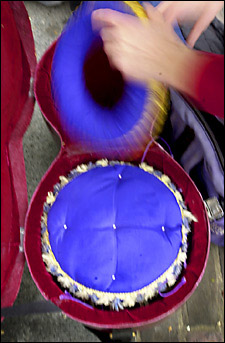
Performance fair
Houses were packed throughout the 12 venues of the Performance Fair. In the Phillips Brooks House Parlor, Bronwen Everill ’05 and Michael Gernsheimer ’05 played duets for violin and piano. The tradition of Arts First served as a way for this duo to establish their own tradition: They have been performing at the event since meeting during their first year at Harvard.
Meanwhile, at Boylston Hall the Russell Wolff Band, an alt-rock outfit with hints of hillbilly, rocked the house. In the audience, 24 seats in Boylston were occupied by a group of girls from the choir at St. Aloysius School in Harlem; they came to Cambridge to sample from the weekend’s artistic banquet.
The stage at a Science Center lecture hall was like a revolving door through which a cappella groups, world music ensembles, improv comedians, and a female punk band entered and exited. Across the yard at Lowell Hall, dance was king – and queen. Chunsa, the Korean fan-dancing troupe, brandished grace and poise, then spun off to make room for eight members of the skirt-swishing Asian-American Dance Troupe. The session ended on an upbeat note: A quintet from TAPS knocked out an energetic rhythmic blitz, a stylishly campy number.
But the Performance Fair was merely a sliver of the weekend’s programming. People of taste scurrying through the locus of Harvard Square in early evening on Friday were compelled to slow down and take in the show. Perched on a stage outside the Holyoke Center, Han Ma-Eum Korean Drum Troupe banged out rhythmic compositions that turned the typically subdued plaza into a percussive extravaganza.
Drama Club productions like Dudley House Drama’s “Sweet Bird of Youth” and Harvard-Radcliffe Dramatic Club’s “The Orestia” were peppered around campus at night. Evening also held grand classical performances in Sanders Theatre, like the Harvard Bach Society Orchestra’s 50th -anniversary concert.
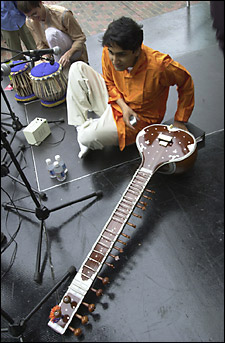
Murder mysteries to tea ceremonies
On Saturday afternoon, STAGE (Student Theater Advancing Growth and Empowerment), a group founded in 2002 that works with public school students in after-school programs to write and perform their own plays, presented its biggest, most elaborate show yet at Agassiz Theatre. All four of the groups that Harvard students worked with during the year – in Jamaica Plain, South Boston, and Roxbury – were there in full regalia, offering the dramatic fruits of their labor. Shows ranged from a murder mystery to tales depicting the challenges of teenage life.
There are other, equally mesmerizing art forms that can fall under the mainstream radar – as the Chado Society proved with its Japanese tea ceremony, an event that sits at the crossroads of performance art and traditional custom. The society spent Saturday demonstrating the ritual for intimate groups in the tearoom in the East Asian Languages Department, one of the only authentic tearooms in the country. Taking part in a ritual that embodies ancient traditions and Zen aesthetics was a calming and welcome respite from the outdoor storms of weather and the muses.

